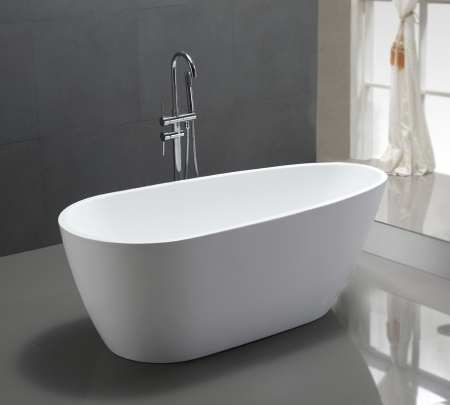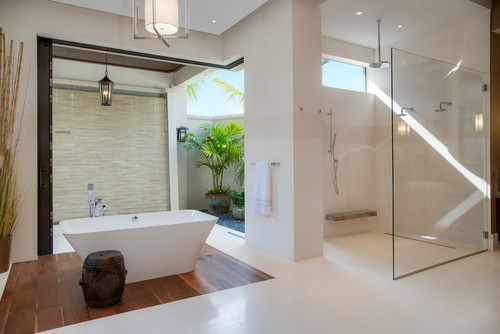Upgrading the bathroom leaves a lot to be decided and with the selection out there today, the options don’t make it any easier to choose. But, if you’re limited to one upgrade and you’re torn between a luxurious shower or a garden tub, some things can help you make the right choice. You’ll want to look at the pros and cons of each, their costs, whether you prefer a tub or a shower (or if you can still create a dual-use fixture with your choice), and other factors to help you find the best fit.
Related: Tips For Upgrading To A Luxury Master Bath
What Is a Garden Tub?
As the pandemic caused people to spend more time at home, many decided to upgrade their spaces to provide a more luxurious escape right in their own houses. This included bathroom renovations and upgrades to create a spa-like space. One popular choice for homeowners today is the garden tub. Deeper and wider than a standard tub, these supersized, freestanding tubs offer a truly relaxing spa-like experience and an impressively upscale design, too.
Garden tubs refer to deep, soaking tubs of various sizes and shapes that are generally freestanding units. They are often part of the demand in a master bath—people want either a tub and a shower or a combination tub/shower unit. They come in all styles and finishes and can fit just about any space. Let’s take a look at the pros and cons of installing a garden tub.
Pros and Cons
These tubs look great and they offer a comfortable space to bathe and relax, without being too cramped or shallow. They are also constructed of high-quality materials and come in several finishes, as mentioned above. They can fit into modern designs, rustic farmhouse bathrooms, and just about any other design or theme that you have in mind.
Garden tubs do have the drawback of attaching plumbing—if you have a freestanding tub that’s not near a wall, you’ll have to find a way to get the plumbing in place. Not only that, but freestanding tubs don’t generally function well as combination showers, since you’ll need a curtain enclosure that goes all the way around, and even then, water can leak out if you aren’t careful.
Generally speaking, though, the pros of these tubs far outweigh the cons for someone who wants a premium bathtub as part of their renovation.
Related: Bathroom Safety Tips For Seniors
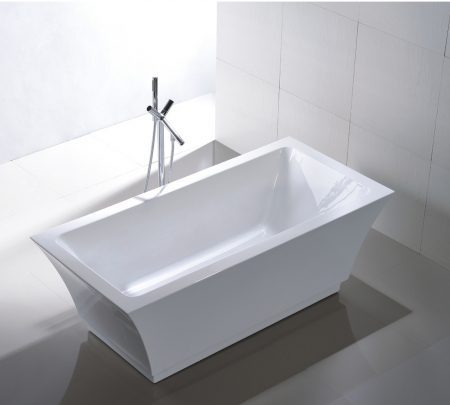
67 Inch White Acrylic Tub
What are Luxury Showers?
Luxury showers are also trending right now, which brings up the debate of this entire article—which trend is best (or is one “better” than the other)? There are several things to consider, of course, including the fact that everyone will have their own personal preferences. But what qualifies as a “luxury” shower?
These are typically classified as large enclosures or wet rooms that are larger and more ornate than a standard shower stall. Recent research even shows that as the demand for baths has decreased slightly, the interest in walk-in showers has increased 100%. Although the reasons vary, people likely prefer showers because of the newly focused importance on hygiene in light of the pandemic, as well as a desire to have more personal space. It also offers a great way to make a statement in the bathroom.
Related: 10 Tricks To Create A Spa-Like Bathroom
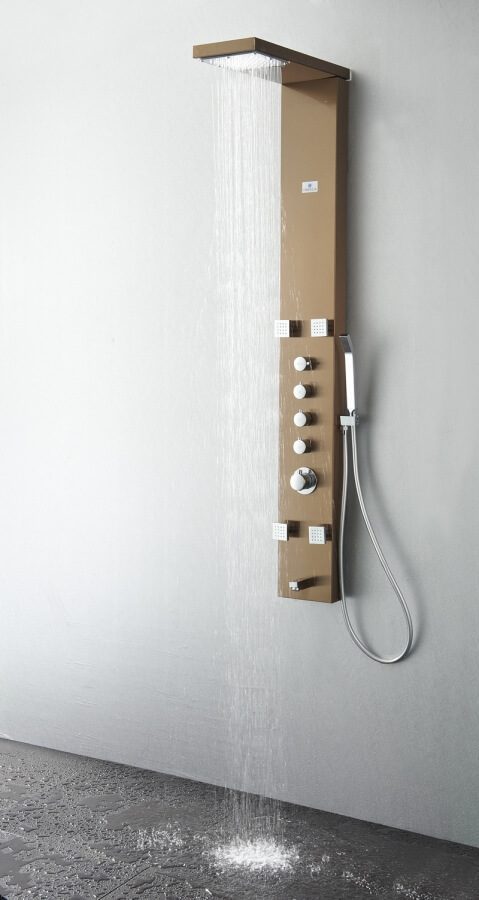
Pros and Cons
Installing a shower can give you as much as a 62.5% return on your investment. Showers also use 2/3 the water of a bath and sometimes are easier to clean than large tubs. A luxury shower is going to give you a space that feels more open and comes with options for fixtures that can give you better cleaning than a single showerhead in a standard shower/tub combo.
There are also some waterproofing concerns with luxury showers—since they don’t have the usual curbs or enclosures, you will need to ensure that tile is installed properly and that you use the proper underlayment to create a water-tight space. Worried about not being able to sit like you would in a tub? Many luxury shower models also include built-in seating so that you can relax and take a break if you’d like. If you are more of a shower person, a luxury shower could be the ideal choice.
Related: Benefits Of A Curbless Shower
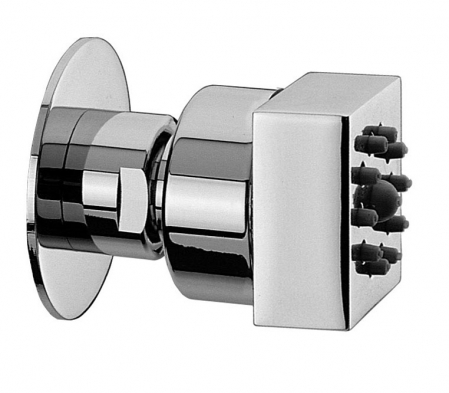
Directional Body Spray with Finish Option
Which is Better: The Tub or the Shower?
Ultimately, what’s better is what works for you. Would you rather have a stylish, relaxing tub to enjoy or a premium luxury shower that makes every day a spa-like experience? Some people even choose to install both, creating the ultimate luxury space in their bathroom so that they can relax and escape right at home. Take the time to consider the pros and cons of each and learn about what you like best. Some people may say these options take up more floor space, and they do, but if you’re creating a luxury bath, it’s likely that you already have the floor space to begin with.
And when it comes to resale value, you will find that any upgrade is going to be better than nothing. Some people wonder if the addition of a tub will devalue the resale of their homes, but that usually isn’t the case. They’re about 2% better on resale than luxury showers. It’s a good idea to see what’s popular in your neighborhood, specifically, to create the best bathroom that adds value to your home and gets you the best in resale value in the long run.
Now that you have a better idea of what to expect with this type of renovation, you’ll be able to decide which upgrade is best for you. Remember to consider what aspects are most important to you: resale value, design, function, space, etc. If you’re still not sure, you can talk to your contractor to help you figure out what design and which fixtures are right for your space. No matter what you choose, when you do it right, your bathroom renovation can increase your home’s luxury and its resale value.
Related: Adding Large Showers And Relaxing Spa Features
Resources
https://waynehomes.com/blog/custom-home-design/the-great-debate-soaking-tub-vs-spa-shower/
https://garretyglass.com/about/blog/shower-vs-bathtub/
https://www.homesandgardens.com/news/luxury-showers-replace-the-bath-tub
https://www.badeloftusa.com/buying-guides/what-is-a-garden-tub/
https://www.thespruce.com/bathtub-sizes-reference-guide-1821342


